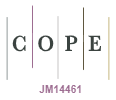The Unified Educational Center (CEU) as a place of teacher training in view of an educating city
DOI:
https://doi.org/10.5585/eccos.n61.22001Keywords:
unified educational center, education for ethnic-racial relations, teacher training, educational territories, educating city.Abstract
This article highlights the role played by the Unified Educational Center (CEU) in offering continuing education courses related to Education for Ethnic-Racial Relations, between 2013 and 2016. In it, we present the results obtained from exploratory research in the Official Diary of the city of São Paulo and on the Portal of the Municipal Education Department of São Paulo, such as the number of offers, the CEUs involved in this training policy and the consolidation of the partnership between the CEUs Coordination and the Ethnic-Racial Education Nucleus. We relate the events offered at the CEUs to the training policy, implemented by the Municipal Department of Education during the analysed period, and the research explains the CEUs as privileged spaces for the implementation of training policies focused on affirmative action. The CEU equipment emerges as a privileged space to enable the training of educators from the conceptual debate, but also enables cultural experience. This perspective is in line with the Charter of Educating Cities, which advocates the promotion of diversity. We emphasize that during the research the activities revealed the struggles and conquest of indigenous and black peoples. Interculturality modifies school culture and the way teachers, students, managers and the community place themselves in multiple interpersonal relationships. In this regard, the school becomes a space for the meeting of multiple knowledges.
Downloads
References
ALMEIDA, Silvio Luiz de. Racismo Estrutural. São Paulo: Jandaíra. Coleção Feminismos Plurais, 2020.
ALVES, Adriana de Carvalho; HADDAD, Claudia Cristina. Educação para as Relações Étnico-raciais: um balanço da formação continuada na RMESP. Poíesis Pedagógica, 17 (1), 44-58, 2020. https://doi.org/10.5216/rppoi.v17i1.59385
BRASIL. Diretrizes Curriculares Nacionais para a Educação das Relações Étnico-Raciais e para o Ensino de História e Cultura Afro-Brasileira e Africana. Brasília. Conselho Nacional de Educação, 2004.
CARDOSO, Fernanda Borsatto; GUARANI, Emerson de Oliveira. Agosto Indígena: formação de professores da Rede Municipal de Ensino de São Paulo para a aplicação da Lei nº 11.645/2008. Revista Temporalis [ação], nº 1, v. 19, jan./jun, 2019.
CANDAU, Vera Maria; RUSSO, Kelly. Interculturalidade e Educação na América Latina: uma construção plural, original e complexa. Revista Diálogo Educacional. Curitiba, v. 10, n. 29, p. 151-169, jan./abr, 2020.
DUSSEL, Enrique. Política da Libertação. Passo Fundo: Ifibe, 2014.
FREIRE, Paulo. Pedagogia da Esperança. São Paulo: Paz e Terra, 1994.
FREIRE, Paulo. Pedagogia do Oprimido. São Paulo: Paz e Terra, 2005.
FREIRE, Paulo. Pedagogia da Autonomia: saberes necessários à prática educativa. São Paulo: Paz e Terra, 1996.
GOMES, Nilma Lino. O Movimento Negro educador: saberes construídos nas lutas por emancipação. Petrópolis/RJ: Vozes, 2017.
GROSFOGUEL, Ramón. Para uma visão decolonial da crise civilizatória e dos paradigmas da esquerda ocidentalizada. In: BERNARDINO-COSTA, J.; MALDONADO-TORRES, N.; GROSFOGUEL, R. Decolonialidade e pensamento afrodiaspórico. Belo Horizonte: Autêntica, 2019.
GROSFOGUEL, Ramón. Para descolonizar os estudos de economia política e os estudos pós-coloniais: transmodernidade, pensamento de fronteiras e colonialidade global. In: SOUSA SANTOS, Boaventura de; MENESES, Maria Paula (Orgs.). Epistemologias do Sul. Coimbra: CES, 2010.
MUNANGA, Kabenguele. Educação e diversidade étnico-cultural: a importância da história do negro e da África no sistema educativo brasileiro. In: Relações Étnico-Raciais e Diversidade. Niterói/RJ: Editora da UFF, Alternativa, 2013.
ROGGERO, Rosemary; BIOTO-CAVALCANTI, Patricia Aparecida (2017). Os Centros Educacionais Unificados: uma proposta educacional integradora. Entrevista com a professora Maria Aparecida Perez. Dialogia, São Paulo, n. 25, p. 17-26, jan./abr. 2017. https://doi.org/10.5585/dialogia.N25.7373
SÃO PAULO (SP). Portaria Intersecretarial – SME/SMPIR/ SMDHC/SMC – Nº 01, de 19 de maio de 2014. Constitui a Comissão Organizadora das atividades de formação, difusão cultural e currículo, a seguir relacionadas: Mostra Cultural – agosto Indígena nos CEUs; II Mostra Cultural – Novembro negro nos CEUs; e Mostra Cultural – Dezembro Imigrante nos CEUs.
SILVA, Tomaz Tadeu da. Documentos de Identidade. Uma introdução às teorias de currículo. Belo Horizonte: Autêntica Editora, 2017. 3ª edição, 9ª reimpressão.
SHUMAN, Lee S. Conhecimento e ensino: fundamentos para a nova reforma. Cadernos CENPEC. São Paulo, v.4, n.2. p.196-229, dez. 2014.
PADILHA, Paulo Roberto e SILVA, Roberto da (Orgs.). Educação com qualidade social: a experiência dos CEUs de São Paulo. São Paulo: Instituto Paulo Freire, 2004.
QUIJANO, Aníbal. Colonialidade do poder, Eurocentrismo e América Latina. In: A colonialidade do saber: eurocentrismo e ciências sociais. Perspectivas latino-americanas. Buenos Aires: CLACSO, Consejo Latinoamericano de Ciencias Sociales, 2005. Disponível em: http://bibliotecavirtual.clacso.org.ar/clacso/sur-sur/20100624103322/12_Quijano.pdf.
Downloads
Published
How to Cite
Issue
Section
License
Copyright (c) 2022 EccoS - Revista Científica

This work is licensed under a Creative Commons Attribution-NonCommercial-ShareAlike 4.0 International License.
- Abstract 636
- PDF (Português (Brasil)) 497






